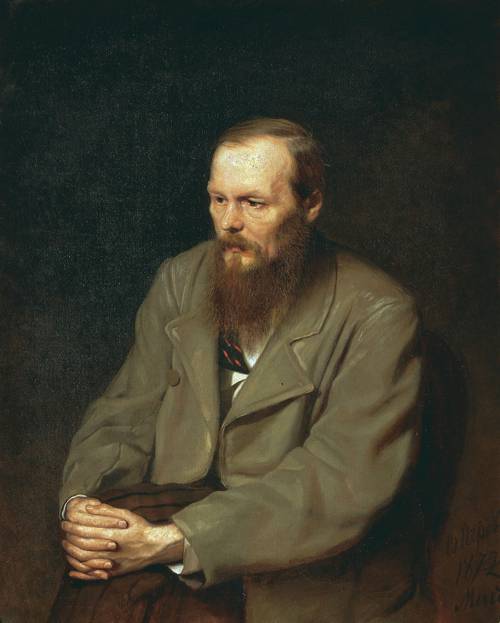
FAQ About The Influence of Russian Literature on Global Culture

What are some key features of Russian literature?
Russian literature is characterized by its deep philosophical and existential themes, a focus on the human condition, and an exploration of society's moral and ethical aspects. It often delves into the individual's place within a larger social context and explores themes of suffering, redemption, and the search for meaning.
Renowned for its rich character development and psychological depth, Russian literature often features complex narratives and a realistic approach to storytelling. Works by authors like Leo Tolstoy and Fyodor Dostoevsky epitomize these characteristics.

Who are some of the most influential Russian authors?
Some of the most influential Russian authors include Leo Tolstoy, known for his epic novels such as 'War and Peace' and 'Anna Karenina'; Fyodor Dostoevsky, famous for his works 'Crime and Punishment' and 'The Brothers Karamazov'; and Anton Chekhov, celebrated for his short stories and plays, such as 'The Cherry Orchard' and 'The Seagull'.
Other significant figures include Alexander Pushkin, regarded as the father of Russian literature, and Mikhail Bulgakov, known for 'The Master and Margarita'. These authors have left a lasting impact on both Russian and global literature.

How did Russian literature influence Western literature?
Russian literature has significantly impacted Western literature through its narrative techniques, philosophical themes, and deep psychological exploration. Western authors, including Virginia Woolf, James Joyce, and Franz Kafka, have drawn inspiration from Russian literary giants, particularly in their portrayal of psychological realism and existential themes.
The profound exploration of moral and ethical dilemmas in Russian literature has encouraged Western writers to delve into similar complex themes, leading to a cross-cultural enrichment of literary traditions.

What role does Russian literature play in philosophical discourse?
Russian literature has played a pivotal role in philosophical discourse by addressing core existential questions and ethical dilemmas. Through their works, authors like Dostoevsky and Tolstoy explored themes of free will, faith, and morality, influencing not only literature but also philosophical thought.
Their novels often reflect the philosophical debates of their time, engaging readers in a dialogue about the meaning of life, the nature of good and evil, and the complexity of human nature. This has led to a profound influence on existential and moral philosophy.

In what ways has Russian literature influenced global film and theater?
Russian literature has influenced global film and theater through adaptations and thematic inspirations. Many classic Russian novels have been adapted into films, such as 'War and Peace' and 'Anna Karenina', offering visual interpretations of their complex narratives and themes. The psychological depth and social critiques present in Russian literature have inspired filmmakers and playwrights worldwide.
Additionally, Chekhov's plays are staples in theater repertoires globally, known for their complex characters and exploration of human nature. This influence is evident in the continued adaptation and performance of Russian literature on both stage and screen.

What is the significance of Russian literature in educational curricula worldwide?
Russian literature holds a significant place in educational curricula worldwide because of its rich narratives and philosophical themes that encourage deep analytical and critical thinking. Works by Russian authors are studied for their historical, cultural, and philosophical contexts, providing students with a comprehensive understanding of world literature.
By studying Russian literature, students gain insight into diverse perspectives on human experience and develop a deeper appreciation for literary traditions beyond their own cultures.

How has Russian literature addressed social and political issues?
Russian literature has historically been a powerful medium for addressing social and political issues, often serving as a critique of the society and governance of its time. Authors like Tolstoy, Dostoevsky, and Solzhenitsyn used their works to explore themes of inequality, justice, and the struggles of the individual against oppressive systems.
These narratives have been instrumental in reflecting and challenging societal norms and political structures, encouraging readers to question and analyze the status quo. This critical exploration has cemented Russian literature's role as an influential voice in socio-political discourse.

What are the major themes found in Russian literature?
Russian literature is known for its exploration of numerous major themes, including existentialism, morality, and the human condition. Many works delve into the complexities of human emotions, spiritual struggles, and ethical dilemmas.
Themes of suffering, redemption, societal change, and the individual's struggle against larger forces are prevalent. Political and social criticism often interweaves with the narratives, reflecting on historical and cultural contexts. These themes have made Russian literature influential and resonant across diverse cultures.

What impact did the Soviet era have on Russian literature?
The Soviet era significantly influenced Russian literature, with state-imposed censorship shaping much of its content. Writers were often compelled to align their works with socialist realism, which glorified communist values and ideals.
Despite these constraints, many authors created profound works that either embraced or subtly critiqued the political climate. Dissident writers such as Alexander Solzhenitsyn gained fame for their works that exposed the harsh realities of Soviet life, contributing to a global understanding of the era's impact on literature.

Why are Russian literary works considered timeless?
Russian literary works are considered timeless due to their universal themes and in-depth exploration of the human experience. They address existential questions, moral dilemmas, and social criticism, which remain relevant across different cultures and eras.
The powerful storytelling, complex characters, and philosophical depth found in the works of authors like Tolstoy and Dostoevsky continue to resonate with readers, sustaining their popularity and influence worldwide.

How has globalization affected the reach of Russian literature?
Globalization has expanded the reach of Russian literature, making it more accessible to a diverse audience worldwide. Increased translation efforts and digital platforms have led to greater availability, allowing international readers to engage with Russian literary classics and contemporary works.
This accessibility has fostered cross-cultural exchanges and enabled Russian literature to influence global literature further, as readers discover new perspectives and adapt Russian themes into their own cultural contexts.

What role did Russian literature play in the 19th-century literary scene?
In the 19th century, Russian literature emerged as a major cultural force, characterized by its profound philosophical and social themes. This period, known as the Golden Age, produced renowned writers such as Leo Tolstoy and Fyodor Dostoevsky, whose works challenged and expanded the boundaries of literary tradition.
Russian literature's deep exploration of moral and psychological themes during this time resonated with European literary circles, significantly influencing Western thought and contributing to the development of literary realism.

How have modern Russian authors continued the legacy of their predecessors?
Modern Russian authors continue the legacy of their predecessors by exploring contemporary themes while maintaining the rich narrative traditions of the past. Writers such as Ludmila Ulitskaya, Victor Pelevin, and Vladimir Sorokin address current social and political issues, often through a lens of magical realism, satire, and psychological depth.
They build upon the strong storytelling foundation established by previous generations, ensuring that Russian literature remains a dynamic and evolving force in global literature.

How does Russian literature explore the concept of identity?
Russian literature frequently explores the concept of identity through its characters' struggles with personal, spiritual, and societal conflicts. Novels often depict characters searching for meaning and self-understanding in the face of moral ambiguity and existential challenges.
The exploration of identity is often intertwined with broader social, political, and historical contexts, providing a multifaceted perspective on how individuals define themselves within their society. This in-depth analysis continues to resonate with readers worldwide.

What influence did Russian literature have on existentialist thought?
Russian literature has had a profound influence on existentialist thought, particularly through the works of Dostoevsky, who explored themes of free will, faith, and the human psyche. His novels, which delve into existential angst and the struggle for authenticity, helped lay the groundwork for existential philosophy.
Philosophers such as Jean-Paul Sartre and Albert Camus drew inspiration from Russian literature to develop their own existential ideas, illustrating the deep interconnection between Russian literary works and existential thought.

What are some major works of Russian literature and their significance?
Some major works of Russian literature include 'War and Peace' by Leo Tolstoy, celebrated for its intricate depiction of Russian society and exploration of human experience; 'Crime and Punishment' by Fyodor Dostoevsky, renowned for its psychological depth and moral exploration; and 'The Master and Margarita' by Mikhail Bulgakov, notable for its satirical critique of Soviet society and its magical realism.
These works have had lasting significance due to their complex narratives, philosophical depth, and ability to transcend cultural boundaries, influencing both readers and writers globally.

Why is Fyodor Dostoevsky considered a master of psychological fiction?
Fyodor Dostoevsky is considered a master of psychological fiction due to his intense exploration of human psychology and emotional depth. His novels delve into the complexities of human nature, moral dilemmas, and existential angst, often featuring characters who grapple with profound internal conflicts.
Through his detailed character development and exploration of themes such as guilt, redemption, and free will, Dostoevsky's works provide profound insights into the human psyche, establishing him as a leading figure in psychological literature.

How did Russian literature contribute to the development of literary realism?
Russian literature contributed significantly to the development of literary realism in the 19th century, with authors like Tolstoy and Chekhov incorporating detailed depictions of everyday life and social conditions into their narratives. This focus on realism allowed for a truthful representation of life, breaking away from the idealized portrayals typical of previous literary movements.
Through their nuanced characterizations and exploration of moral and social issues, Russian realist writers influenced global literary practices and inspired subsequent generations to embrace realistic storytelling.

What is the impact of Russian literature on intellectual debates worldwide?
Russian literature has influenced intellectual debates worldwide by engaging with existential, moral, and social questions that resonate universally. The works of Dostoevsky, Tolstoy, and other Russian authors have sparked discussions on topics such as free will, the nature of good and evil, and the societal role of the individual.
These discussions have transcended literary circles, influencing philosophical and ethical debates and encouraging readers worldwide to reflect on complex human experiences and societal structures.

What challenges do translators face when translating Russian literature?
Translators face several challenges when translating Russian literature, including capturing the nuances of language and cultural context embedded in the original texts. Russian literature often contains rich, complex sentences and unique idiomatic expressions that can be difficult to convey in another language.
Additionally, translating the philosophical and existential themes that are characteristic of Russian literature requires a deep understanding of both the source material and the target language's cultural context. Ensuring fidelity to the original text while making it accessible and engaging for a new audience is a complex and nuanced task.
